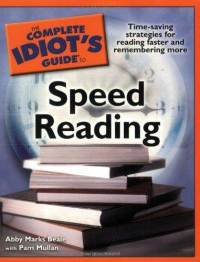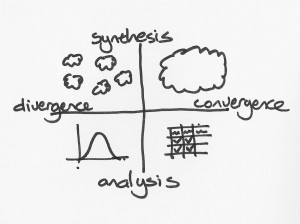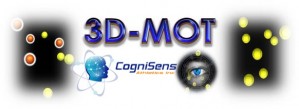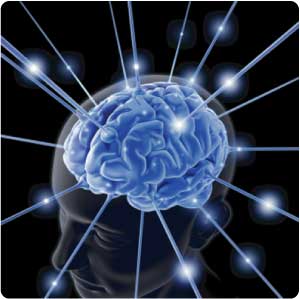Use Your Finger to Crank Your Brain
 I read faster from paper than I do on a computer screen. With paper I can use my finger to guide my eyes. A well-known speed reading technique, guiding and pacing, lowers the load on your visual system and helps avoid skipping back and other distractions. It is simple and it works. Try it out.
I read faster from paper than I do on a computer screen. With paper I can use my finger to guide my eyes. A well-known speed reading technique, guiding and pacing, lowers the load on your visual system and helps avoid skipping back and other distractions. It is simple and it works. Try it out.
With practice you can drop your finger and still get the effect because your eyes have been retrained. I get some of this effect but am still fastest with good comprehension when I use my finger.
This is just one of the techniques covered in the excellent book, The Complete Idiot’s Guide to Speed Reading.
If you don’t already use these techniques, several weeks of practice will produce a big jump in you reading speed and will likely improve comprehension as well.
Reading speed is important. The difference between a slow reader and an excellent reader means 3 books per week if you read an hour a day.
Very interested to hear from readers that have simple techniques (e.g. use of your finger) to crank your reading speed or other cognitive performances.
Categories: Books, Memory and Learning, Mental Focus, Perception, Training Tags: processing speed, speed reading
Reclaim Your Divergent Thinking Talents
Many older adults worry about memory loss. This is a serious issue especially if it leads to dementia and the inability to do the activities of daily living.
But just as serious, and more so in many ways, is the dramatic loss of divergent thinking skills in young children.
One long-term study found that in a group of 1600 children those that ranked tops in divergent thinking dropped dramatically with age. Specifically, those achieving a top score for divergent thinking went from 98% in kindergarten to 32% five years later to just 10% when they reached early teens. Divergent thinking is a natural talent and is rapidly educated and socialized away.
 Divergent thinking is the capacity to see multiple options, alternatives or possibilities. The goal is not to find a solution but instead find an enormous range of potential and therefore very different solutions. For example, how many interesting uses can you find for a rubber band? On average people might find 10-20, genius level performance would generate in excess of 150. The trick to generating many more options is to begin to relax assumptions about what a rubber band is. What if it was a mile long? Of course, some would claim that is cheating, as we have all been taught to do. Just as there is one right answer so why worry about so many?
Divergent thinking is the capacity to see multiple options, alternatives or possibilities. The goal is not to find a solution but instead find an enormous range of potential and therefore very different solutions. For example, how many interesting uses can you find for a rubber band? On average people might find 10-20, genius level performance would generate in excess of 150. The trick to generating many more options is to begin to relax assumptions about what a rubber band is. What if it was a mile long? Of course, some would claim that is cheating, as we have all been taught to do. Just as there is one right answer so why worry about so many?
The question is how can we reclaim our genius level of performance in divergent thinking? How can we then channel it into creative expression and break-through problem solving?
Mind mapping, journaling and traditional brainstorming are techniques that are typically offered to those looking to build divergent thinking skills.
Start simple with brainstorming by yourself but apply it to a practical problem that means something to your right now.
Here is what you do. Let’s say you are buying a new computer. Use divergent thinking to decide what to do with the old one. Set a time limit (say 20 minutes at most), and list as many ideas as you can. Best to write them down. Go for the largest number, don’t worry if they are good/bad, look at how you can combine ideas and allow for the weird and strange. Have fun with it. Open up your mental jets.
 With continued practice your mind will get use to this mode of thinking again and you will start to reclaim your divergent thinking talent. Consider using mind mapping or some other way of seeing how your ideas related to each other visually. Include others. Let alternatives bubble up all day or all week and capture them in a journal as you go. Soon your thinking will diverge far and fast when you want it to. The payoff? Good ideas that you would have normally never even considered.
With continued practice your mind will get use to this mode of thinking again and you will start to reclaim your divergent thinking talent. Consider using mind mapping or some other way of seeing how your ideas related to each other visually. Include others. Let alternatives bubble up all day or all week and capture them in a journal as you go. Soon your thinking will diverge far and fast when you want it to. The payoff? Good ideas that you would have normally never even considered.
Interested to hear form readers that practice divergent thinking. What techniques do you use?
Categories: Lifestyle, Problem Solving, Training Tags: creativity, processing speed
Develop Your MOT – Multiple Object Tracking Skills
 CogniSens Athletics is a small company dedicated to translating the latest neurophysics into tools for improving the cognitive performance of athletes. They just announced the release of 3D-MOT a three dimensional (3D) immersive training environment for developing the cognitive skills needed for multiple object tracking (MOT). It uses a computer and specialized goggles to teach you how to visually track more than one moving object at a time. A key cognitive skill in sports. To quote a news release:
CogniSens Athletics is a small company dedicated to translating the latest neurophysics into tools for improving the cognitive performance of athletes. They just announced the release of 3D-MOT a three dimensional (3D) immersive training environment for developing the cognitive skills needed for multiple object tracking (MOT). It uses a computer and specialized goggles to teach you how to visually track more than one moving object at a time. A key cognitive skill in sports. To quote a news release:
“D-MOT is a scientifically designed system for improving perceptual tracking skills by expanding an athlete’s capacity to absorb and process complex movement information. … players have shown that just one hour of distributed 3D-MOT stimulation yielded an average of over 50% increase in capacity to track at speed, with greater increases being realized with extended training. ”
 Most of us won’t have the opportunity to use such technology but I wonder if there is not more generally available options that produce some of the same effects. My guess is that some video games are an example.
Most of us won’t have the opportunity to use such technology but I wonder if there is not more generally available options that produce some of the same effects. My guess is that some video games are an example.
Consider Geometry Wars. Definitely need to be able to track multiple moving objects at once to get anywhere with this game. Indeed, in playing it, I have had to learn to defocus my eyes to increase my score. Most likely a sign that I am learning a new perceptual skill.
I am interested to hear from readers about examples of video games or other methods that can help us develop MOT (multiple object tracking) skills.
Categories: Mental Focus, Perception, Software, Training Tags: cognitive fitness, games, processing speed, sports
How Fast Do You Think? Should You Care?
 The speed at which your brain processes information is a fundamental measure of cognitive efficiency. Faster processing speeds have been linked to more effective intelligence, memory formation and even longevity. In short, the faster you think the smart you are! Happily, you can easily measure, and with practice improve, your thinking speed. Tools and techniques for increasing the speed of thought will be a frequent topic on the Next Brain Blog.
The speed at which your brain processes information is a fundamental measure of cognitive efficiency. Faster processing speeds have been linked to more effective intelligence, memory formation and even longevity. In short, the faster you think the smart you are! Happily, you can easily measure, and with practice improve, your thinking speed. Tools and techniques for increasing the speed of thought will be a frequent topic on the Next Brain Blog.
One way to get started is to take the Thinking Speed Test at Cognitive Labs. You need to go through a brief registration but it is worth it. They give you a short reaction time test and some handy feedback. You can even track your performance over time.
Try it out and post your results. Especially interested in what techniques you are using to improve it. My initial score was 241 milliseconds.
Source: Image of the Brain
Categories: IQ and EQ, Memory and Learning, Perception, Software, Training Tags: brain training, cognitive fitness, games, processing speed
